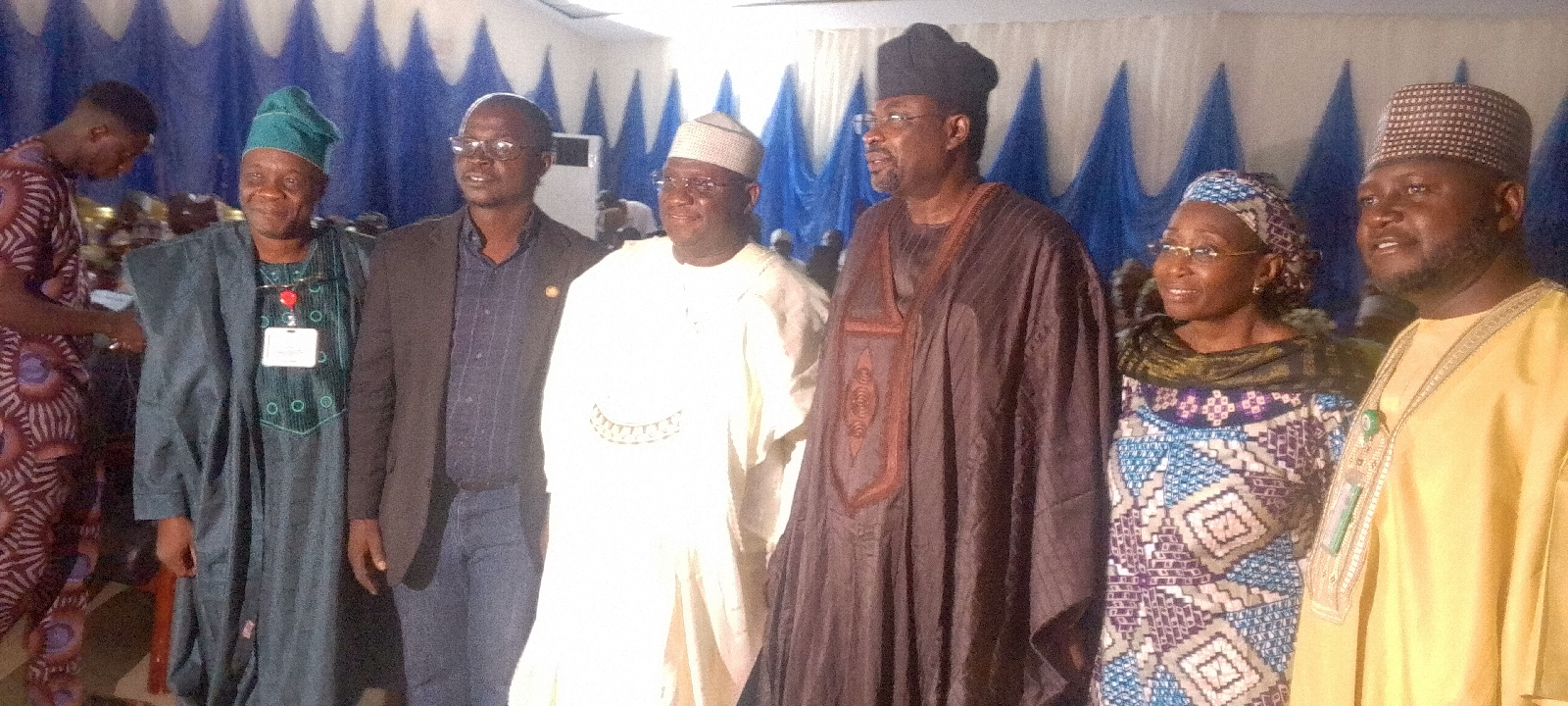Tinubu Administration to Uplift Artisans to Global Standards – Dr. Afiz Ogun, DG ITF
By Genesis ogiri
Abuja, Nigeria – 18 June 2025 — In a bold stride toward repositioning Nigeria’s informal sector for global competitiveness, the Federal Government, under the leadership of President Bola Ahmed Tinubu, has unveiled a transformative vision to upgrade Nigerian artisans to international standards. This was disclosed by Dr. Afiz Oluwatoyin Ogun, the Director-General of the Industrial Training Fund (ITF), during his address at the Nigerian Artisans’ Leadership Summit (NALSUM) 2025, held at the National Centre for Women Development, Abuja.
The summit, organized by the Association of Nigerian Artisans and Technicians (ANAT), brought together key players in the vocational and technical space, including grassroots leaders, industry captains, development partners, and policymakers, all unified in their resolve to advance the Nigerian artisan community.
Dr. Ogun, in his remarks, noted that the days of unskilled and uncertified labor are coming to a close. He reaffirmed the ITF’s commitment to developing a highly skilled artisan workforce that meets both national development goals and global employment standards.
“We are in a startup phase,” Dr. Ogun explained, “but this phase is only the beginning. The real goal is to train, certify, and strategically place Nigerian artisans where their skills are needed, both locally and internationally. After training, there will be purposeful efforts to ensure job placement and enterprise support.”
He emphasized that discussions are already ongoing with various stakeholders across public and private sectors to absorb the trained artisans, saying that industry partnerships will be key to sustainable engagement and utilization of the talent pool being developed.
“There will be no more quacks in the artisan sector,” he stated. “The government has decided to chart a new dimension — one that is structured, quality-driven, and results-oriented.”
In a significant policy shift, Dr. Ogun announced the discontinuation of traditional startup packs that were previously distributed to artisans after training. According to him, while well-intentioned, these packs have not yielded the expected outcomes and have, in many cases, contributed to inefficiencies and waste.
“Government has spent billions on startup packs over the years, but the impact has not matched the investment. We’re doing away with that model,” he said. “Now, we are focusing on long-term economic empowerment through certification, placement, and access to real industrial value chains.”
Dr. Ogun described the government’s new approach as a journey to the “promised land” for Nigerian artisans. This promised land, he explained, is grounded in a comprehensive framework built on three strategic pillars: Input, Outcome, and Exit.
Input refers to the selection and training of artisans using standardized curriculum and global best practices.
Outcome involves certification, skills testing, and validation by relevant industry bodies.
Exit includes integration into formal industry value chains, job placement, and access to enterprise development resources.
“The promised land is not a myth. It is a structured pathway already being implemented, with measurable milestones and accountability mechanisms,” he asserted.
This renewed drive aligns with the broader “Renewed Hope Agenda” of the Tinubu administration, which prioritizes job creation, human capital development, and industrialization. The ITF, under Dr. Ogun’s leadership, is positioned as a key implementing agency of this national vision.
Stakeholders at the summit praised the DG’s bold stance and the government’s willingness to depart from outdated practices. Representatives from ANAT, SMEDAN, the Ministry of Labour and Employment, and several private sector organizations pledged their support to the ITF’s strategic direction.
As Nigeria grapples with high youth unemployment and a rapidly changing global labor market, the need to reposition the artisan sector has never been more urgent. Experts believe that the current ITF reforms, if implemented with diligence and inclusiveness, could catalyze an era of dignified labor, industrial growth, and export-ready skills.
Dr. Afiz Ogun closed his address with a strong call to action:
“We are not training artisans just for certificates. We are building a productive class of professionals who can build, maintain, and innovate across sectors—from construction and plumbing to mechatronics and ICT. Nigeria’s future is in the hands of its skilled people, and ITF is here to unlock that potential.”
The renewed commitment of the Tinubu administration, as articulated by Dr. Afiz Oluwatoyin Ogun, signals a turning point in Nigeria’s skills development landscape. By shifting focus from handouts to structured empowerment, and from informal practice to internationally certified professionalism, the Industrial Training Fund is laying the groundwork for a more productive, competitive, and respected artisan workforce.
With a clear roadmap built on input, outcome, and exit strategies, the ITF is not only responding to today’s challenges but also preparing Nigerian artisans for the demands of the future. If sustained and supported by all stakeholders, this initiative could mark the beginning of a skills revolution—one that will redefine labor, restore dignity to craftsmanship, and drive inclusive economic growth across the nation.
By Genesis Ogiri
Special Correspondent, National Economic Affairs




